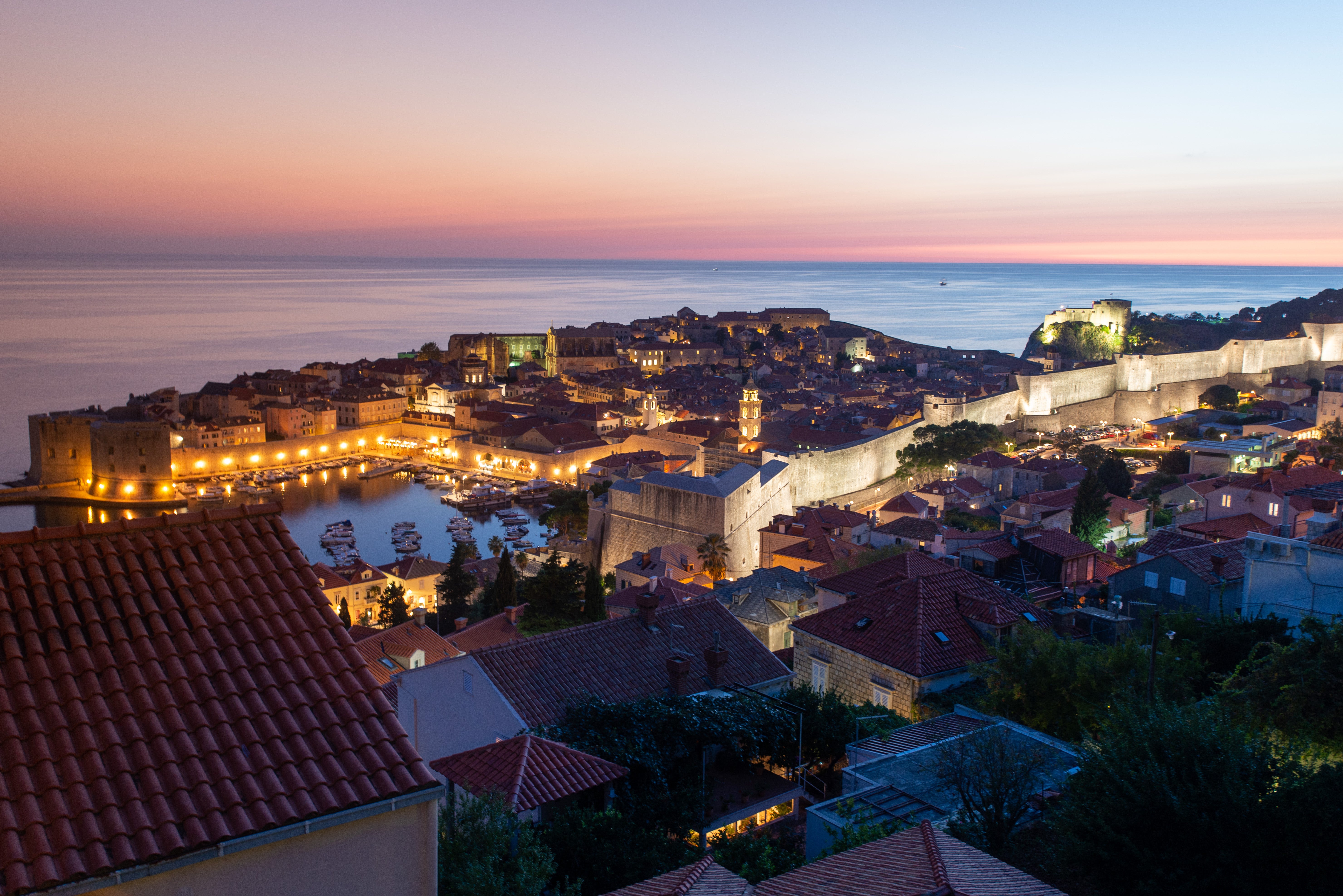Amid war in Ukraine, is it safe to travel to Croatia?
Simon Calder answers your questions on visiting Ukraine’s neighbours, PCR tests, pandemic refunds and booster timings


Q Would you say it’s safe to travel to Croatia over the Easter weekend with regards to the war?
Sharon J
A Many prospective travellers are concerned about possible dangers posed by Russia’s brutal assault on Ukraine – and Vladimir Putin’s demonstration, with his unprovoked attack on a peaceful neighbouring nation, that the Kremlin is capable of unbelievable violence.
But my belief is that the war will not spread elsewhere in Europe: indeed on Monday I am starting a trip through Lithuania, Latvia and Estonia, all of which border Russia. Putin’s appalling warmongering is unsettling for the citizens of those Baltic republics, especially those old enough to remember when they were part of the Soviet Union. But nothing I have seen or read – including the Foreign Office travel advice – makes me fearful for my safety.
The same applies to the prospects of travel to Poland, Slovakia, Hungary and Romania, all of which (unlike Croatia) share a border with Ukraine. The main risk I focus on: road safety. Experience shows road accidents represent by far the largest danger to British travellers abroad.
I would go beyond saying it’s safe to travel to eastern Europe: I urge travellers to celebrate the opportunity to provide support. Before my trip, I sought the advice of Neil Taylor, author of the Bradt Guide to Estonia. He told me that the Baltic republics will have all too much hotel space, because they would normally be welcoming Russians – as they have for decades.
The tourism industry will suffer, he says, adding: “That market has now disappeared. Even after a ceasefire and diplomatic improvement, the rouble isn’t suddenly going to go back to its old value. So there will be difficulties for those people.”
As I have said often: travel connects humanity, spreads wealth and creates joy. This summer will provide the chance to prove that more than ever. So enjoy the tranquility of Croatia, and then consider another trip to the always fascinating and welcoming east of Europe.

Q Do you think Morocco will drop the need for PCRs for vaccinated travellers in time for Easter?
Maggie
A Oh, Morocco: a wonderful north African nation with some very curious Covid-19 policies. I was hoping to head south to Tangier, Casablanca and Marrakech in October 2020, with a flight booked and all, but instead my trip went figuratively south as the coronavirus pandemic spread. My colleague Helen Coffey made it there by train and ferry last autumn, but shortly afterwards the borders closed to British visitors.
The October 2021 travel ban was sudden (just days before the main half-term week for families in England and Wales) and uncompromising, with direct flights between the UK and Morocco suspended and airlines ending up trying to send out empty planes to bring people back – with some of those turned back en route.
At the time I spoke to Zina Bencheikh, managing director of adventure operator Intrepid Travel in Europe, who said the decision would be “particularly devastating for local people in Morocco who rely on tourism for their livelihood”.
The travel ban remained in place for months, until 7 February, to be replaced by a pretty hard-line requirement for a PCR test within 48 hours before departing for Morocco – even for fully vaccinated and boosted travellers. Morocco’s rules are stricter for jabbed visitors than Tunisia’s are for unvaccinated travellers.
The health ministry in the capital, Rabat, is definitely outplaying the tourism ministry. Hopefully, once the government sees how much business is being lost to other destinations, they will ease their onerous and expensive rules.

Q I paid in full for a ski trip in France due to take place in March 2020. Covid stopped that happening. However, I am still not in receipt of any funds. I have pursued the travel agent and the operator, and also through my bank/credit card, but I have still not received anything despite continued promises.
It is about £5,000, so not an insignificant amount and quite frankly I am getting annoyed that this can happen. Any advice?
Name supplied
A Two years ago, when the coronavirus pandemic started to unfold, stories like yours were common. But by now almost all claims against holiday companies, except for some badly behaving offshore online travel agents, should be long settled.
The puzzling thing for me is: it appears that you had booked a proper package holiday. Assuming the trip was called off completely – as pretty much everything was by about halfway through March 2020 – then you were due a full refund. The law says all your money should be returned within two weeks. That deadline was widely breached as travel firms had to turn into refund organisations. But certainly by the time two months, let alone two years, had elapsed, you would have serious cause for concern. I presume you asked your travel agent for the refund. In the normal course of events, they would fetch it from the tour operator and hand it on. It was reasonable to approach the bank if you were being messed around. I imagine, though, that the bank asked if you had actually been told no money would be forthcoming, and you replied with honesty that you had been promised it.
A plausible scenario is that the agent is using your cash to buoy up its finances and is in no hurry to return it. With such a large sum at stake, I would proceed by writing a “letter before action” stating how much you expect and why, and giving a week before beginning proceedings. If you get nothing but more promises, the appropriate legal venue is the government’s Money Claim Online, for which a claim of £5,000 costs £205 upfront. Given the situation, this should be recovered when your claim is met.

Q I’m travelling to Port de Soller in Mallorca. On the government website it says you must have had two doses of the vaccine within 270 days of the flight to go out. I’ve had all three of mine but my booster was 320 days ago.
How do I stand as I have tried to book a fourth but I’m not entitled to it?
Name supplied
A As travellers emerge from the depths of the pandemic, there are still a vast array of traps awaiting the unwary – plus a vast amount of either opaque or completely wrong information online.
The current Foreign Office advice for Spain appears to be correct, but I agree it is confusing.
Before you reach the airport going out, you must complete a Spanish health control form (known as an FCS) at spth.gob.es. This should generate a QR code that you can then show to airport staff and on arrival in Spain – print or smartphone will do.
You also need proof of being fully vaccinated. And this is where the confusion arises in the Foreign Office advice. It says: “Your final dose must have been administered within 270 days prior to travel to Spain.” If you stop reading there – which I could understand, given the density of information – you will feel flummoxed. So I hope my interpretation of the rules is clearer.
1. If you have only had two jabs (or one dose of a single-dose vaccine), then protection is deemed to have expired after 270 days (almost nine months).
2. But you have completed an initial course and have subsequently been boosted at any time, that is fine – no time limit applies.
I have contacted the Foreign Office to suggest that the wording is clarified.
Also, bear in mind that you may be contacted in the 48 hours after you arrive in Spain and be asked to take a Covid-19 test. But that is a very small risk.
Finally, I hope and expect Spain to ease its rules soon.
Email your question to s@hols.tv or tweet @simoncalder






Join our commenting forum
Join thought-provoking conversations, follow other Independent readers and see their replies
Comments